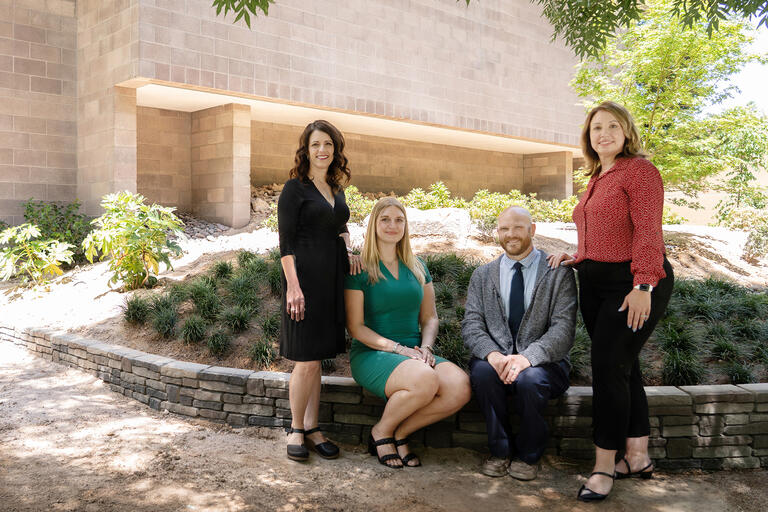
Kirk Kerkorian School of Medicine at UNLV News
The Kirk Kerkorian School of Medicine at UNLV is becoming a world-class center for medical education, patient care, and research. We aim to prepare Nevada's doctors with the most innovative and technologically advanced forms of medical training while also forming community partnerships to serve the healthcare needs of our diverse and urban population.
Current Medicine News

How medical students are mastering anatomy through human body dissection, plastinated specimens, and immersive technologies.

This operations specialist at the School of Medicine is powered by main-character energy and a lot of sticky notes.

Dr. Jennifer Chen shares her passion for emergency medicine and how the specialty complements her lifestyle.

UNLV’s new clinic restores a critical statewide service; for Nicol, it restores something even more personal.

UNLV community outreach programs offer practical learning opportunities for students while leveraging our resources to address societal needs.

The medical school's couple and family therapy program is Nevada's only accredited, face-to-face program preparing students for CFT licensure.
Medicine In The News
For decades, diagnosing Alzheimer’s disease (AD) has required access to specialist memory clinics, neuroimaging or invasive cerebrospinal fluid (CSF) testing. That paradigm is starting to shift. In 2025, the US Food and Drug Administration (FDA) cleared the first blood-based biomarker tests intended to aid the assessment of AD.

A new study recently released is for the "night owls" and shows the impacts staying up late can have on your heart. In this large study, research showed people who are more active late at night have poorer heart health than the average person.
But health experts say, this is fixable! On ARC Las Vegas we talked with Dr. Marc Kahn with the Kirk Kerkorian School of Medicine at UNLV.

A new study led by a UNLV medical student shows pharmacists face a heightened risk of suicide, highlighting mental health concerns in a profession often overlooked by the public.

UNLV unveils new research facility built around a functional magnetic resonance imaging (FMRI) machine. The FMRI scan can help doctors plan for brain surgery and other procedures by showing what areas of the brain are most active.

Nevada launched the second round of funding for a loan forgiveness program this week designed to bring more healthcare professionals to underserved areas across the state.

A deadly, drug-resistant fungus already spreading rapidly through U.S. hospitals is becoming even more threatening worldwide and a UNLV professor is making sense of the risk.
Medicine Experts





